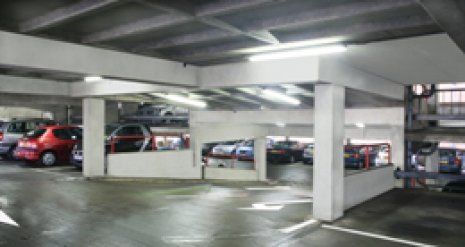Honeywell’s LED lighting solution saves energy at Northampton car park
St Michael’s car park in Northampton has seen a 75% reduction in energy consumption thanks to an LED lighting solution supplied by Honeywell.

St Michael’s car park in Northampton has seen a massive reduction in energy usage having switched to Honeywell LED lighting. So much so that the drop in electricity consumption triggered a concerned call from the energy provider who mistakenly believed lights must have stopped working. The move to LED is predicted to reduce the car park’s energy consumption by as much as 75%, saving up to £17,800 annually.
Councillor John Caswell, deputy leader Northampton Borough Council and cabinet member for environment, said: “A few weeks after we made the switchover our energy provider called us, concerned that several lights in the car park must have stopped working as there’d been such a dramatic drop in energy usage. Not only are the huge energy-savings – and resulting cost-savings – already obvious, but the significantly lower maintenance costs will also impact our bottom line over time.”
St Michael’s is the first car park in the borough to have LED lighting installed. The existing six-foot twin 70 watt fluorescent units were replaced with Honeywell five-foot twin 23 watt LED Utility units, reducing the energy consumption of lighting in parking bays from 178 watts to 46 watts and halving the energy consumption in the stairwells. This gave comparable light output whilst significantly reducing energy usage.
Councillor Caswell continued: “With a lifespan of 60,000 hours, the only maintenance required over the next 10 years will be cleaning, compared to fluorescent lamps which need to be replaced approximately every two years. For St Michael’s car park the result is far less disruption to everyday operations.”
